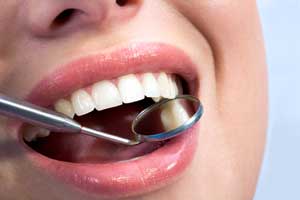
The findings, published in the journal Applied and Environmental Microbiology, suggest that boosting the body’s natural defenses against pathogens may hold more promise when it comes to preventing tooth decay than using external agents such as sealants and fluoride treatments.
According to the researchers, salivary mucins do not alter the levels of S. mutans nor do they kill the bacteria over a 24-hour period. Instead, salivary mucins keep bacteria suspended in a liquid medium, which in turn reduces their ability to form biofilms on teeth.
According to Erica Shapiro Frenkel, of Harvard University and first author of the study, the oral microbe is better preserved when naturally occurring species are not destroyed, adding that the ideal scenario would be to weaken bacterial virulence.
The current study is grew out of the researchers’ prior work looking at the protective effect of porcine gastric mucins against common lung pathogens. Defects in mucin production have been linked to asthma, cystic fibrosis, and ulcerative colitis, according to Frenkel.
“There is increasing evidence that mucins aren’t just part of the mucus for structure or physical protection, but that they play an active role in protecting the host from pathogens and maintaining a healthy microbial environment. We wanted to apply these emerging ideas to a disease model that is a widespread, global public health problem—cavities. We chose to study the interaction of MUC5B with Streptococcus mutans because it is the primary cavity-causing bacteria in the oral cavity,” says Frenkel.








